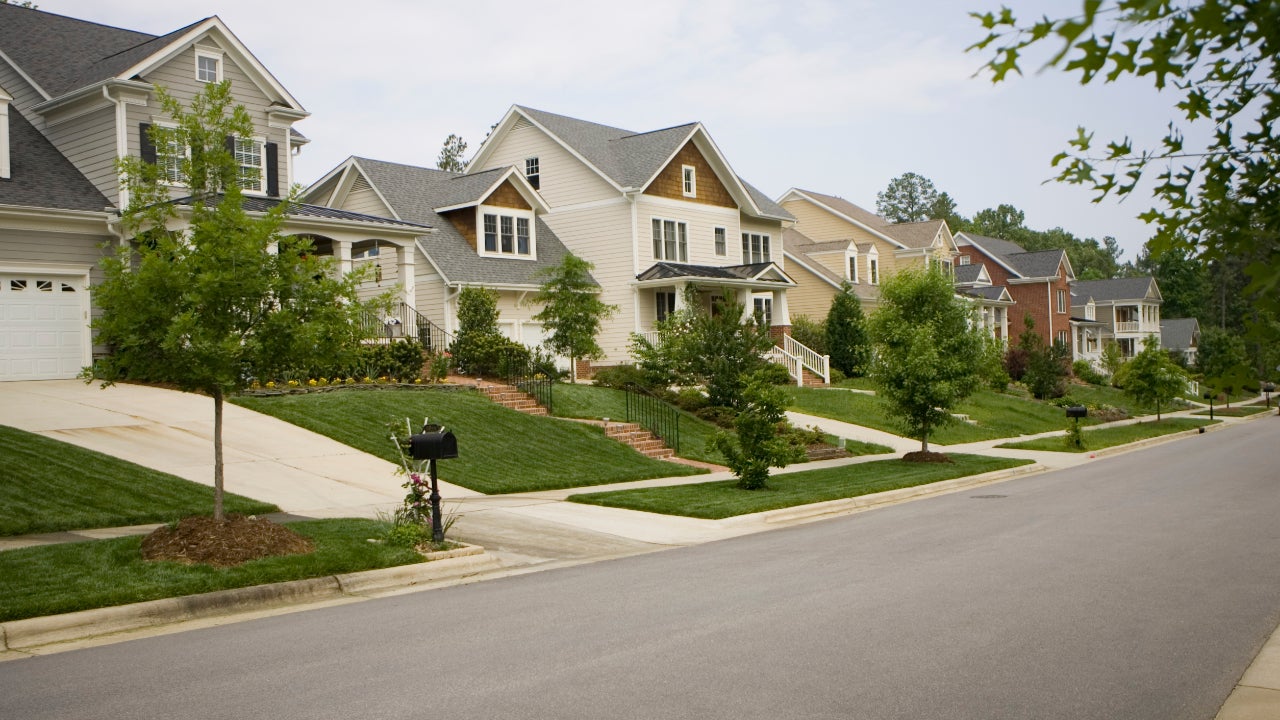Home>Finance>What Should An HOA Do If A Homeowner Refuses To Pay A Late Fee


Finance
What Should An HOA Do If A Homeowner Refuses To Pay A Late Fee
Published: February 23, 2024
Learn what steps an HOA can take when a homeowner refuses to pay a late fee. Understand the financial implications and legal options for resolving the situation.
(Many of the links in this article redirect to a specific reviewed product. Your purchase of these products through affiliate links helps to generate commission for LiveWell, at no extra cost. Learn more)
Table of Contents
**
Introduction
**
Homeowners' associations (HOAs) play a crucial role in maintaining the integrity and value of a community. One of the responsibilities of an HOA is to enforce the rules and regulations outlined in the governing documents, which often include provisions for late fees when homeowners fail to pay their dues on time. Late fees are essential for ensuring the financial stability of the HOA and for encouraging timely payments from all members.
However, situations may arise where a homeowner refuses to pay a late fee, posing a challenge for the HOA. In such cases, it's important for the HOA to understand its rights and options for addressing the issue while maintaining a professional and amicable relationship with the homeowner.
In this article, we will explore the steps an HOA can take if a homeowner refuses to pay a late fee. From understanding the late fee policy to communicating with the homeowner and considering legal actions, each step is crucial in navigating this delicate situation. By following the appropriate procedures, an HOA can uphold its financial stability and regulatory framework while striving to resolve the issue in a fair and respectful manner.
Understanding the HOA Late Fee Policy
Before addressing a homeowner’s refusal to pay a late fee, it’s essential for the HOA board and management to have a clear understanding of the late fee policy outlined in the governing documents. The late fee policy typically specifies the amount of the late fee, the grace period granted to homeowners, and the procedures for imposing and collecting late fees.
The late fee amount is usually a fixed percentage of the overdue amount, and it serves as a deterrent against delayed payments. Understanding this aspect is crucial, as it forms the basis for any actions taken by the HOA regarding late payments.
Equally important is the grace period provided to homeowners before the late fee is imposed. This grace period allows homeowners a reasonable amount of time to submit their payments without incurring additional charges. HOA board members and management should be well-versed in the specifics of this grace period to ensure that late fees are applied fairly and consistently across all homeowners.
Furthermore, the governing documents outline the procedures for imposing and collecting late fees. It’s imperative for the HOA to adhere to these procedures meticulously, as any deviation could lead to disputes with homeowners and potential legal complications.
By comprehensively understanding the late fee policy, the HOA can ensure that it is acting within its rights when addressing a homeowner’s refusal to pay a late fee. Additionally, a clear understanding of the policy enables the HOA to communicate effectively with homeowners, providing transparent explanations of the late fee and the associated consequences.
Attempting to Communicate with the Homeowner
When a homeowner refuses to pay a late fee, open and respectful communication is key to resolving the issue amicably. The HOA should initiate contact with the homeowner to understand the reasons behind the refusal and to provide a clear explanation of the late fee policy and its implications.
Initially, the HOA can send a friendly reminder to the homeowner, acknowledging the missed payment and the associated late fee. The communication should aim to express understanding while emphasizing the importance of timely payments for the community’s financial stability and the equitable treatment of all homeowners.
If the homeowner responds to the reminder, the HOA should engage in a constructive dialogue to address any concerns or challenges the homeowner may be facing. Understanding the homeowner’s perspective can shed light on potential solutions, such as setting up a payment plan or providing resources for financial assistance if needed.
In cases where the homeowner remains unresponsive or adamantly refuses to pay the late fee, the HOA may consider scheduling a meeting to discuss the matter in person. Face-to-face communication can often facilitate a more empathetic exchange and allow both parties to express their viewpoints more effectively.
Throughout the communication process, the HOA should maintain professionalism and empathy, striving to find a mutually beneficial resolution. Documenting all communication with the homeowner is crucial, as it provides a clear record of the HOA’s efforts to address the refusal to pay the late fee and can serve as valuable evidence if further actions are necessary.
By proactively attempting to communicate with the homeowner, the HOA demonstrates a commitment to resolving the issue through dialogue and understanding, fostering a cooperative and harmonious community environment.
Imposing Additional Penalties
When a homeowner persistently refuses to pay a late fee despite the HOA’s attempts to communicate and resolve the issue, the association may consider imposing additional penalties as outlined in the governing documents. These penalties are designed to encourage compliance with the payment obligations and to uphold the integrity of the community’s financial regulations.
One common additional penalty is the suspension of certain privileges or amenities provided by the HOA. This could include the suspension of access to community facilities, such as a pool or gym, or the restriction of participation in HOA-sponsored events or programs. By implementing these measures, the HOA aims to impress upon the homeowner the seriousness of the situation and the potential consequences of continued non-compliance.
In some cases, the governing documents may also allow the HOA to charge interest on the overdue late fee. This serves as a financial incentive for the homeowner to settle the outstanding amount promptly and discourages prolonged non-payment.
It’s important for the HOA to clearly communicate the imposition of additional penalties to the homeowner, providing a formal notice outlining the specific consequences and the steps required to remedy the situation. Transparency and adherence to the procedures outlined in the governing documents are essential to mitigate potential disputes and legal complications.
While imposing additional penalties, the HOA should continue to maintain open lines of communication with the homeowner, expressing a willingness to address any concerns and work towards a resolution. The objective is not to escalate the situation unnecessarily but to convey the gravity of the matter and the necessity for compliance with the community’s regulations.
By judiciously imposing additional penalties in accordance with the governing documents, the HOA endeavors to uphold the integrity of its financial framework and promote accountability among all homeowners, fostering a community environment built on mutual respect and adherence to established guidelines.
Legal Action
When all attempts to resolve the issue of a homeowner refusing to pay a late fee have been exhausted, the HOA may need to consider legal action as a last resort. Legal action should be approached with careful consideration and in compliance with the governing documents and applicable state laws.
Prior to initiating legal proceedings, the HOA should consult with legal counsel specializing in community association law to assess the viability and implications of pursuing legal action. Legal professionals can provide invaluable guidance on the specific steps to be taken, the documentation required, and the potential outcomes of legal recourse.
If the decision to pursue legal action is made, the HOA, typically through its legal representation, may file a lawsuit against the homeowner to enforce the collection of the late fee and any associated penalties. The lawsuit would be based on the provisions outlined in the governing documents and supported by evidence of the homeowner’s refusal to comply with the community’s financial obligations.
Legal action may also involve seeking a judgment against the homeowner, which could result in a court-ordered mandate for the payment of the outstanding late fee, additional penalties, and legal costs incurred by the HOA. It’s important for the HOA to adhere to all legal procedures and deadlines throughout the litigation process, ensuring that its case is presented effectively and in accordance with the law.
It’s crucial to recognize that legal action can be a lengthy and resource-intensive process, often involving court appearances, negotiations, and potential appeals. The HOA should be prepared for the associated costs and the impact on community relations, as legal disputes can strain the harmony and trust within the neighborhood.
Ultimately, the objective of legal action is to enforce compliance with the community’s regulations and to uphold the financial stability of the HOA. However, the decision to pursue legal recourse should be made with a thorough understanding of the potential ramifications and a commitment to seeking a fair and equitable resolution.
Conclusion
Dealing with a homeowner’s refusal to pay a late fee can present challenges for an HOA, requiring a delicate balance between upholding financial regulations and fostering positive homeowner relations. By understanding the late fee policy, communicating effectively, imposing additional penalties judiciously, and considering legal action as a last resort, the HOA can navigate this complex issue with professionalism and diligence.
It’s essential for the HOA to approach the situation with empathy and a commitment to open dialogue, seeking to understand the homeowner’s perspective and addressing any underlying concerns. Clear and transparent communication, coupled with a thorough understanding of the governing documents, forms the foundation for resolving disputes related to late fees.
Imposing additional penalties, such as the suspension of privileges or the application of interest on overdue fees, serves as a mechanism to encourage compliance while maintaining opportunities for constructive resolution. However, these measures should be implemented in accordance with the established procedures and with a focus on fostering cooperation.
Legal action should be considered as a last resort, following careful deliberation and consultation with legal counsel. The decision to pursue legal recourse should be guided by a commitment to upholding the community’s financial stability and regulatory framework, while acknowledging the potential impact on community relations and resources.
In conclusion, addressing a homeowner’s refusal to pay a late fee requires a multifaceted approach that balances assertiveness with understanding. By adhering to the governing documents, maintaining open lines of communication, and considering the escalation of penalties or legal action when necessary, the HOA can uphold its responsibilities while striving to preserve a harmonious and cooperative community environment.














